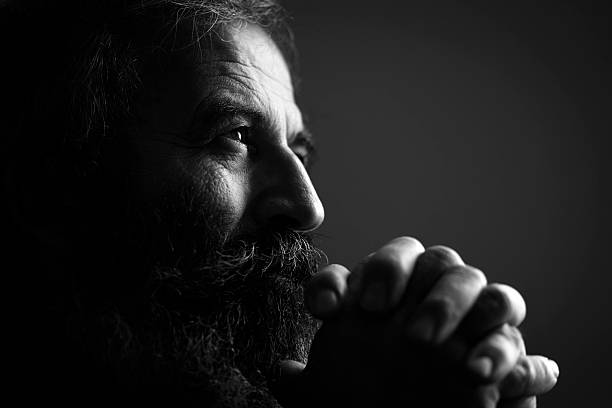Thoughts and Prayers
Are the words “thoughts and prayers” an empty epithet?
I have often wondered that when there is a tragedy such as a major accident or an event with mass casualties, we hear leaders come out and say, “Our thoughts and prayers are with you”.
I also wonder if they really mean it.
Because we hear other people saying during those times, “We need more right now than your thoughts and prayers”. “We need more”.
So, when a leader says, “Our thoughts and prayers are with you”, are they using this to exclaim their concern, and then they’re off the hook?

I say, “If you really mean it when you say you are sending thoughts and prayers, why not just say a prayer right there and then right there, on the public airwaves”?
And that would certainly display your genuine desire to evoke the help of Divine Power, the Lord and also, cement your genuine intention to help those at their time of dire need.
I remember clearly once when I was teaching in a high school, and there was a world tragedy, one student came to me and asked if a mass could be offered for the victims. It was Catholic high school and there was no question about it. That very same day, a mass was offered to pray for the victims. And it came from a young student. That was telling.

So next time you hear a leader say, on public airwaves especially, “We are sending thoughts and prayers”, ask yourself, “are they really”?
It’s time that we become bolder and pray right there, over the airwaves for all to hear, to feel and to absorb and to ask the Divine for help right out loud. Then, offer what you will do for the victims, right there as well. It just might have more meaning – to everyone. For Wired to Heal, I’m Donna Korchinski
Are the Words “Thoughts and Prayers” an Empty Epithet?
Introduction:
In times of tragedy and hardship, it has become commonplace to hear the phrase “thoughts and prayers” offered as a response. Whether it’s a natural disaster, a mass shooting, or a personal loss, this phrase has become a go-to expression of sympathy. However, in recent years, there has been a growing debate about whether these words hold any real meaning or if they have become an empty epithet. In this blog, we will explore both sides of the argument and delve into the deeper implications of this phrase.

The Power of Empathy:
To understand the controversy surrounding “thoughts and prayers,” it is essential to acknowledge the power of empathy. When faced with tragedy, individuals often seek solace in knowing that others care about their pain and suffering. Expressing thoughts and prayers can be a way to convey empathy and support, reminding those affected that they are not alone in their struggles.
The Criticism:
Despite the good intentions behind the phrase, it has faced significant criticism in recent years. One of the main arguments against “thoughts and prayers” is that it has become a hollow response, lacking any real action or tangible support. Critics argue that it has become a default reaction, a way to absolve oneself of responsibility without taking any meaningful steps to address the underlying issues.
Furthermore, some argue that “thoughts and prayers” can be seen as a form of performative empathy, where individuals use the phrase to appear compassionate without actually engaging in any substantive action. This criticism suggests that the phrase has lost its sincerity and has become a mere platitude.

The Call for Action:
In the face of tragedy, many argue that action is needed more than ever. While thoughts and prayers can provide emotional support, they are not enough to bring about real change or alleviate suffering. Advocates for change argue that instead of relying solely on words, we should focus on concrete actions that address the root causes of the problems we face.
For instance, in response to mass shootings, calls for stricter gun control measures have grown louder. Rather than offering thoughts and prayers alone, individuals are encouraged to support legislation, engage in meaningful conversations, and actively work towards preventing future tragedies.
Reclaiming the Phrase:
Despite the criticism, there are those who believe that “thoughts and prayers” can still hold value if accompanied by genuine action. They argue that the phrase can serve as a starting point for empathy and solidarity, but it should not be the endpoint. By combining thoughts and prayers with tangible efforts, such as volunteering, donating, or advocating for change, individuals can transform the phrase into a catalyst for positive change.

Conclusion:
The debate surrounding the phrase “thoughts and prayers” is a reflection of our collective desire for empathy and action in times of crisis. While some view it as an empty epithet, lacking substance and action, others believe it can still serve as a meaningful expression of support when accompanied by genuine efforts to make a difference.
Ultimately, the true value of “thoughts and prayers” lies in how we choose to interpret and act upon them. It is up to each individual to decide whether they will allow these words to remain empty gestures or use them as a starting point for meaningful change. By combining empathy with action, we can ensure that our words are not just empty epithets but a genuine reflection of our commitment to making the world a better place.
Wired to Heal, I’m Donna Korchinski Book a session today to explore Thoughts and Feeling




